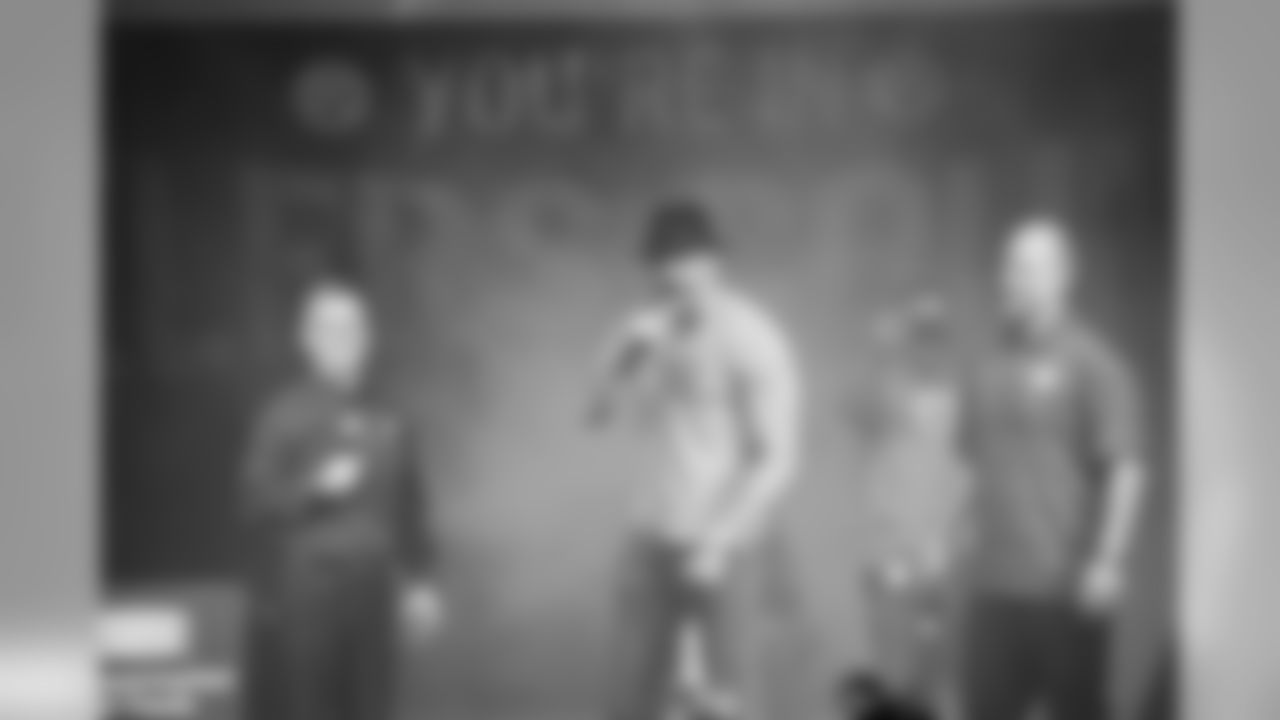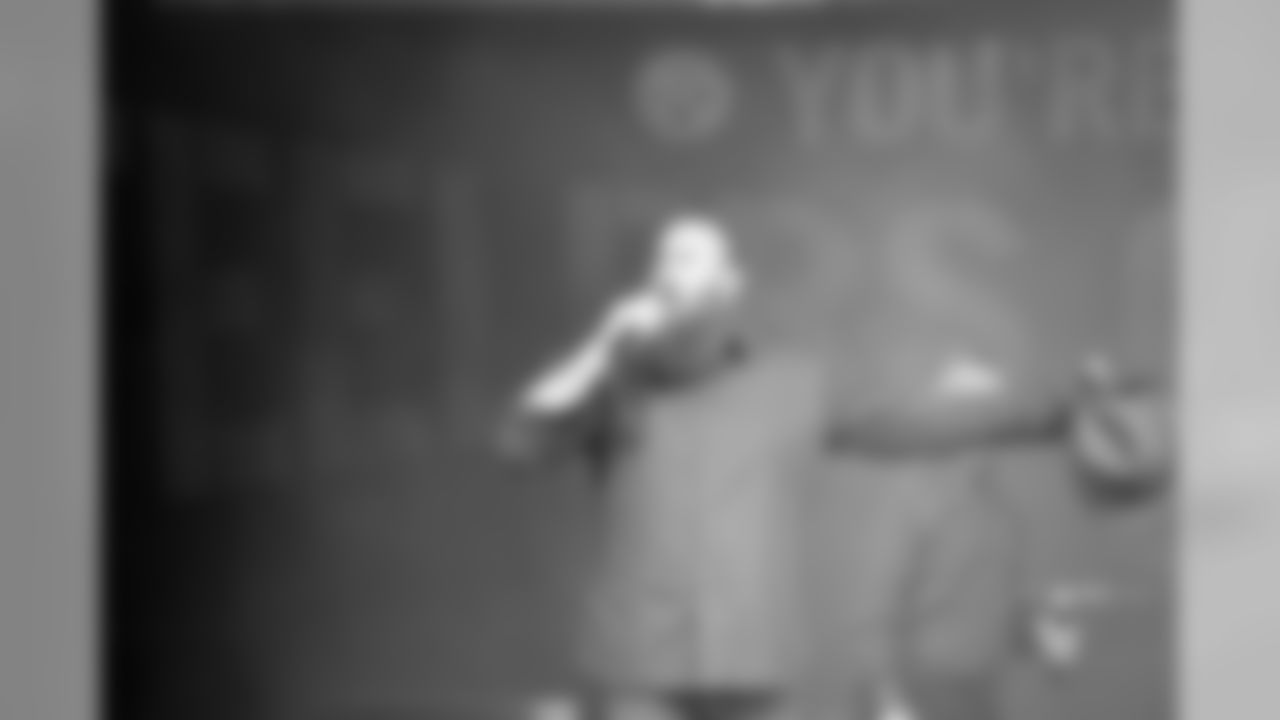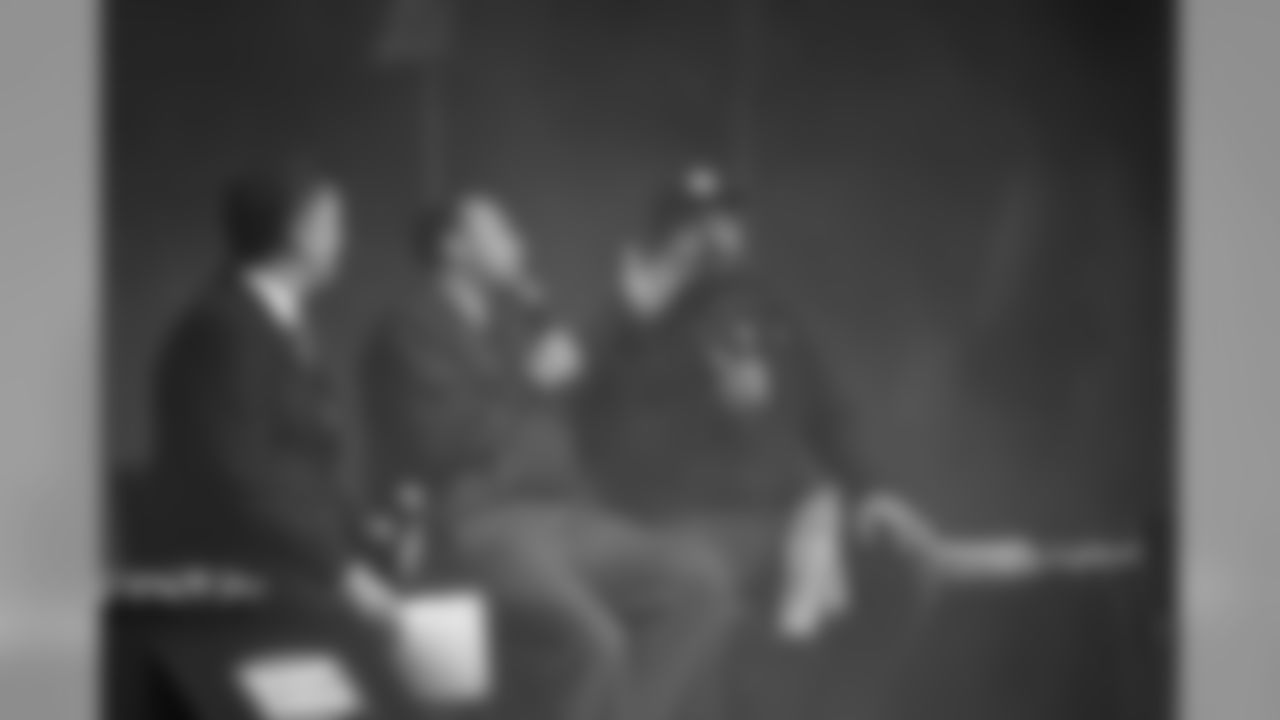Q. In talking about the win over the Chiefs, you said, "I think when you have an opportunity to come out of the game on the other side of that, you really grow from it. We were tested in a lot of ways within the game." How were you tested?
A. Just learning more about yourselves in terms of your ability to rise up in significant moments. You can't artificially create an AFC Divisional Round Game at Arrowhead Stadium. They guys who were on the field and made the necessary plays to get us out of that stadium will carry that experience with them the rest of their professional lives, and obviously it'll be a positive experience to carry forward. And those are good things.
Q. Is that in your mind, in your assistants' minds, as you're making the next game plan?
A. No question about it. And if it's not a direct thought, it's an indirect thought in that you know teams grow and grow in a very rapid rate at this time of the year. That's why it's so important to continue to play, not only because of what you're chasing but the growth opportunities involved there. Guys like Artie Burns and Javon Hargrave and Sean Davis have grown so much in the last three weeks, and those are opportunities they wouldn't have had if they weren't in the tournament.
Q. Does that make you willing to put them into positions in upcoming games that you wouldn't have put them in, say, six weeks ago?
A. Without question. Without question. Those are big moments. Two-point conversion attempts in the back of the end zone with very little time left, and you don't freeze up, you make the necessary play in the way Sean Davis did, for instance. You can build around that.
Q. I noticed Mike Mitchell on kickoff coverage against the Chiefs, and he's a guy who typically plays every snap on defense every time he has a helmet on. How does that happen? Do you ask? Does he volunteer? Do you ask for volunteers and he raises his hand?
A. (Laughs). I think there is very little communication needed. I think it probably was something along the lines of I looked at him and he looked at me, and we both knew. There is no need to save bullets at this time of the year. There had been several weeks there where we had been giving up balls to midfield, and you just can't afford to have those type of things. We've got capable people, guys who are capable and willing to help. He's done this before in his professional career, and obviously that was when he was much younger. But these are big, exciting times, and guys want to do anything they can to help our cause.
Q. You said in response to a question on Tuesday, "I think this time of year the battle is man vs. himself." What did you mean by that?
A. I mean that, quite simply, what you have to do to get out of stadiums has very little to do with the opponent. It has more to do with your plan and your ability to execute your plan and your ability to stay singularly focused in spite of circumstance, whether the circumstances are positive or whether the circumstances are negative. The more we can focus on us and what we're doing and how we're doing it and who we're doing it with from a division of labor standpoint, that ultimately determines our fate. You acknowledge you have a good team on the other sideline, you acknowledge that when you're on the road in January it's a hostile environment. Those are cookie-cutter things that are going to be on the other side. How we perform and what it is we do relative to our expectations and our preparation is going to determine our play.
Q. You talked about the reality of the increased media attention that comes with being one of the last four teams playing. Did you notice that much of a difference?
A. Certainly, but I anticipated it, and many times for this journey I've prepared our team for it. We've had several unique experiences over the course of this journey that provided an opportunity to expand the discussion and talk about things like that. This year we played on Thanksgiving and Christmas, and there's a certain amount of fanfare associated with those games. And those games were good experiences for us in that regard, in terms of being able to absorb some of the extra attention that is January football.
**
Steelers Nation gathers for a pep rally at Stage AE before the AFC Championship Game against the New England Patriots.


















































































Q. Were you even paying attention to what was being said/written?**
A. I pay attention to just about everything. Sometimes I pretend I don't. (Laughs) But I don't miss much.
Q. Does this mean anything, to be one of the teams playing for a conference championship? The steps along the way to the ultimate goal, how do you view them?
A. I understand what you mean when you ask that, but for me this leg of the journey is necessary in terms of meeting our goal. I stay singularly focused and work extremely hard to do so each and every year. I never want to settle for anything less than our standard, and that's to be world champion. It's an honor, it's not something I take for granted in terms of being in this final four, but it's definitely not something I look reflectively upon in regards to our positioning. Man, this is very necessary if you want to be world champion.
Q. In talking about the personality of the Chiefs before last week's game, you said they were a fundamentalist group but they want you to believe they are not. Does that describe the New England Patriots in any way?
A. It's similar but different. I think New England likes all of the attention that their offense and Tom Brady get, and they'd just as soon draw you to all of that, but the reality is that they are a well-balanced group in all three phases. They've got top-notch significant players and continuity and solid scheming in the other two phases of their game as well. Malcolm Butler is playing as well as any cornerback in football. Devon McCourty is playing as well as any centerfielder in football. On special teams, they have guys like Matt Slater, who's a perennial Pro Bowl guy in terms of representing the AFC in the Pro Bowl. They have quality specialists – they average 41.1 yards net punting on the season. They are a well-balanced group. Tom Brady gets a lot of attention and rightfully so given his resume, but I think they like that diversion.
Q. Does the personality of a team always reflect the personality of that team's coach?
A. Usually. Often when it doesn't, it's because of some significant personalities within the leadership of the group – veteran players and so forth. In those instances it's usually a combination of the veteran leaders and the head football coach.
**
Q. What would be the characteristics of a Bill Belichick team?**
A. Cerebral. Calculating. You can take an image of Bill on the sideline during a game and that would give you an assessment of the way his group approaches what it is that they do. And their motto exemplifies everything: Do your job. They take a "do your job" approach to the game of football.
Q. To be in the conversation about the best of all time, a quarterback has to be able to do a lot of things at a high level. What would you identify as Tom Brady's defining attribute?
A. He's very good above the neck. He's got pinpoint accuracy. People don't talk enough about his accuracy, whether it's short accuracy or long accuracy. And by short accuracy, that's just displayed in terms of the yards after the catch. New England leads the NFL in yards after the catch at 6.3 yards per completion. The league average is 5.0. The No. 2 team is the Atlanta Falcons at 6.1. They have dynamic players, but a lot of the reason they lead the league in yards after the catch is because of his pinpoint accuracy in terms of putting the ball in catch-and-run positions relative to the nearest defender. He is special in that way.
Q. The Patriots defense doesn't have a lot of sacks or a lot of takeaways, and it doesn't lead the league in red zone defense, but it does lead the league in points allowed. How are they making that happen?
A. They're fundamentally sound on the edges and over the top. What I mean is when you're playing against the New England Patriots, the field isn't 53-and-a-third yards wide. Regardless of the structure of their defense, they put parameters and set edges on the perimeter of their defense that reduces the amount of field that they have to defend, and they do the same thing on the back end with guys like McCourty and Patrick Chung back there. They have a very nice, tight umbrella. Very rarely do they give up plays over the top, and very rarely do they get out-leveraged on the perimeter, and so you're playing in a tighter space than you do against most defenses. And that creates a level playing field for them and allows them to keep the score down.
Q. In a game like this, good-on-good almost at the end of single-elimination, is it helpful to be the underdog?
A. I don't know that anybody has an underdog mentality in these matchups. I think those are outside discussions and outside noise. I imagine all four teams that are still in this tournament feel good about their positioning and feel good about their chances. I know we do.
Q. If you don't have an underdog mentality and people from the outside are telling you that you're the underdog, is there any impact there?
A. That's what you call gasoline on the fire, and I don't mind that. (Laughs)
Q. What kind of a game are you expecting tonight?
A. It's going to be a rough and tumble game. It's going to be physical on both sides. It's going to be our ability to stand up in the moment and seize the day. It's going to be a don't-blink type of game. If guys feel the urge to blink, they need to cut their eyelids off. That's just how it goes. It's going to be exciting, it's going to be good for football. It's something that's humbling to be a part of.














